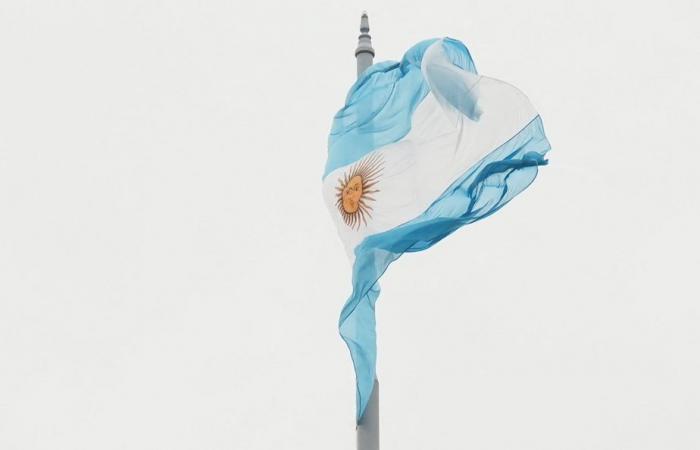(Buenos Aires) Argentina received an oxygen ball from the International Monetary Fund (IMF), the World Bank (BM) and the Interamerician Development Bank (BID) on Friday, with no less than $ 42 billion in total, a support presented by the World Bank as a “important vote of confidence” to the government.
Posted at 10:00 p.m.
Updated at 10:35 p.m.
Tomas Viola and Philippe Bernes-Lasserre, with Erwan Lucas in Washington
Agency France-Presse
The Loan of the IMF was expected and amounts to $ 20 billion as announced earlier in the evening by the Argentinian Minister of the Economy, Luis Caputo.
Validated by the board of directors of the fund, it provides for the immediate disbursement of a first unprecedented tranche of $ 12 billion, while second, two billion, is already looming for next June.
It is the “recognition of the impressive progress made in the stabilization of the economy” Argentina and a “vote of confidence in the determination of the government to continue the reforms”, said on X the director general of the fund, Kristalina Georgieva.
The Argentine economy will grow “like never before”, welcomed the Announcement of the Argentinian President Javier Milei.
The surprise, on the other hand, came from the BM, which at the same time announced an aid of $ 12 billion in the Andean country, in order to “support the reforms which continue to attract the private sector and strengthen the measures set up to promote job creations”.
As for the BID, it is expected to grant up to $ 10 billion over three years to the Argentinian government, after validation by its board of directors.
Agreements allowed in particular by the announcement by the central bank (BCRA) at the end of the day of a floating exchange rate for the Argentinian peso against the dollar, initially between 1000 and 1400 pesos per dollar, a band “whose limits will be extended to the rate of 1 % per month”.
-Again access to the dollar-
Furthermore, and crucially for the daily life of Argentines, which by historical distrust for their own currency think, calculate and hoard in dollar, the limit of access to 200 dollars per month per person will be lifted, said the BCRA.
The agreement with the IMF will allow, “from Monday, to put an end to the exchange of foreign exchange, which did so much trouble, and since its implementation in 2019 affects the normal operation of the economy,” added the minister, whose teams have been in negotiation with the IMF on the agreement since November.
This fresh money injection is considered to be crucial by the government to reconstruct the central bank’s reserves and “exterminate inflation” permanently, in the words of Javier Milei.
In March, Argentine inflation established 3.7 %, a significant revival compared to the previous six months. But who has not denied a heavy tendency to disinflation for more than a year.
In interannual, it is currently 55.9 % over 12 months, against 211 % at the end of 2023, at the start of the Milei presidency and the first shocking austerity measures, including a strong devaluation of more than 52 % of the PESO.
“Need like air”
“Milei needs this agreement as well as air,” analyzed Belen Amadeo, political scientist at AFP at the University of Buenos Aires. “He needs it to validate his economic proposal, give himself more room for maneuver, because if instability settles and inflation increases, insecurity wins the population who instantly takes refuge towards the dollar”.
With these funds, the Government hopes for financial and ultimately stabilization, to revive growth, to date the missing part in the Milei strategy, after a year 2024 in recession (-1.8 %), the backlash of budgetary austerity at a high social cost of its first year of presidency.
At the beginning of 2024, poverty had jumped at 52.9 %, before retreating to 38 %in the second half, almost the level before the Milei presidency (41.7 %).
The new loan is nothing less than the 23e IMF financing agreement, in various forms, with Argentina since its membership in 1956. Symbol of chronic debt and the recurring risk of insolvency of the country, which has become over the years the main debtor of the fund, before Ukraine.
In 2018, Argentina had obtained a massive loan of $ 44 billion in the fund, an amount whose country still has to reimburse the majority, and for which the peronist government (center left) preceding Javier Milei had – already – negotiated refinancing in 2022.






